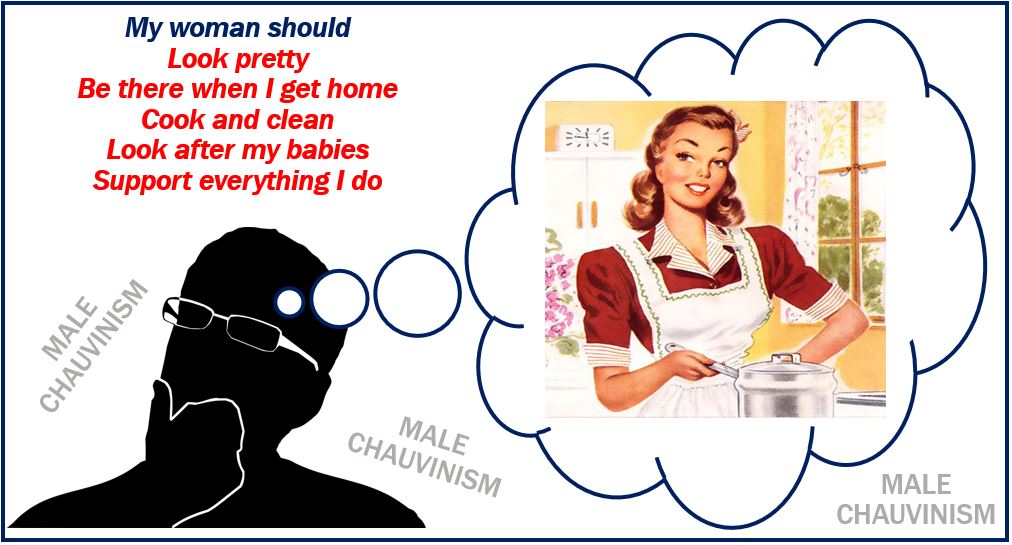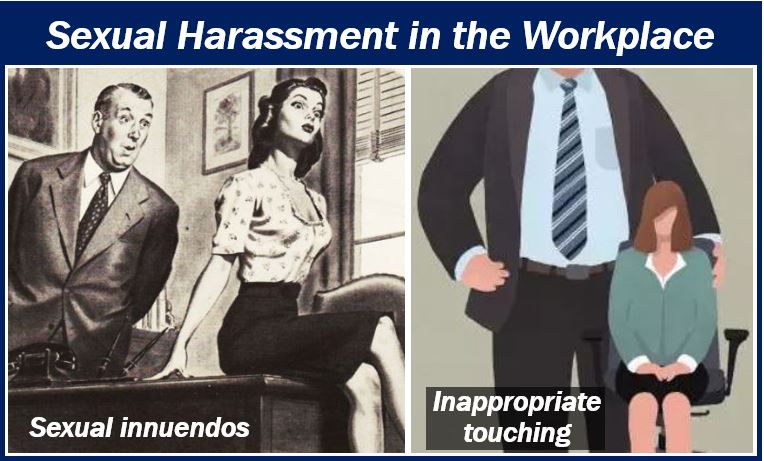
Male chauvinism is the belief that men are superior to women, especially in the workplace. This belief is unsubstantiated, i.e., there is no proven, compelling, or reliable evidence to support this belief. A person who practices this belief is a male chauvinist. Male chauvinists typically denigrate, disparage, and humiliate women in the workplace.
Male chauvinists commonly joke that a woman’s role is to clean and cook. If a woman is excluded from business decisions in the workplace, it is usually due to male chauvinism.
In an article in Chron, Neil Kokemuller writes:
“Male chauvinism is counter to typical societal standards of professionalism and ethics in the early 21st century. Men who convey an attitude of superiority toward women and act in response to it are usually looked down on by colleagues.”
The word chauvinism, on its own, refers to a form of extreme nationalism and patriotism and a belief in national glory and superiority.
The Cambridge Dictionary defines a male chauvinist as follows:
“A man who believes that women are naturally less important, intelligent, or able than men, and so does not treat men and women equally.”
Etymology of male chauvinism
Etymology is the study of the origin of words and how their meanings and structures have evolved.
According to Etymonline.com, the word chauvinism (on its own) entered the English language in 1840. At the time, it meant only “exaggerated, blind nationalism; patriotism degenerated into a vice.” It came from the French word ‘Chauvinisme,’ from the character Nicholas Chauvin. Chauvin was a soldier of Napoleon’s Grand Armee.
Even after it was history, Chauvin idolized Napoleon and the Empire in ‘La Cocarde Tricolore,’ a play by the Congiard brothers.
It wasn’t until the late nineteenth century that the word also meant “excessive belief in the superiority of one’s race.”
The term Male Chauvanism, with its current sexism meaning, started becoming popular in the English language in the 1960s. Wikipedia says that the first documented use of ‘male chauvinism’ is in Clifford Odets play Till the Day I die (1935).

World War II changed the balance of the workplace
After World War II, the balance of the workplace changed. During the war, men left their places of work to join the military. They were subsequently replaced by women.
When the war was over, men returned to find jobs. It was during this period that male chauvinism began to rise, according to researcher Cynthia B. Lloyd.
Some signs of male chauvinism
- It is wrong for a woman to flirt or cheat on her husband, but not the other way round.
- Slapping or beating a woman is sometimes necessary.
- Feminism is a threat, not a plight of women attempting to correct centuries of injustice.
- Successful women are seen as a threat.
- A woman should not earn more than her husband or male peers in the workplace.
- A man has a right to have sex with his wife (she has no say).
- The husband does not do housework. Raising children, feeding them, and changing babies’ diapers (UK: nappies) is a woman’s job.
Market Business News is 100% against male chauvinism. For us, everything that it stands for is reprehensible.
